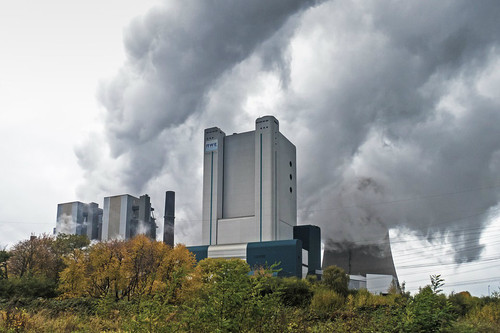Product Description
Abstract
This case is based on a real regulatory dilemma between the Kansas Department of Health and Environment and the Sunflower Electric Power Corporation.
In the case, the hypothetical Fremont Department of Health and Environment must decide whether to approve new power plant permits from Good Coal Electric Power (GCEP), an established company and reliable employer in the area. The coal-powered project would have potentially unprecedented CO2 emissions, but no legal regulation exists with respect to CO2. DHE Commissioner Carrie Conscientious has her own opinion, namely that CO2 emissions are linked to climate change, but the denial of this permit could have detrimental repercussions for her administration’s political party in the upcoming election.
The case materials begin with the background to Commissioner Conscientious’ choice (Part 1), move to pertinent law and administrative records between the DHE and GCEP (Parts 2 and 3), update the dilemma by recounting the three years following the Commissioner’s choice (Part 4), and introduce students to the actual legal basis for the case (Part 5). Primarily, the case focuses on the ambiguous legal authority of Commissioner Conscientious amidst legal precedent, stakeholder concerns, and contested scientific principles. The Commissioner asks her General Counsel and Chief of Staff: “Do I have the legal authority to deny GCEP’s permit application? If I do deny it, what will the ramifications of my decision be?” Students will adopt the advisory roles of the General Counsel and Chief of Staff, drafting memoranda and presenting advice to the Commissioner.
The Administrative Record includes memoranda, correspondence, permits, and other documents exchanged between the two parties. NB: This part include over 200 pages of materials; participants will learn how to extract relevant information from extensive records, but will not be expected to know the material in depth.
Learning Objectives
- Begin to develop a systematic approach to problem solving when faced with an unresolved issue or new situation.
- Understand the roles of the regulator and the administration in ensuring public welfare.
- Identify the ethics and norms of leadership and regulation amidst vaguely defined authority and legal framework.
- Contemplate the sometimes opposing forces of policy and science in U.S. government decision making.
Subjects Covered
Environmental law, regulation, leadership, public health, conflicts of interest
Setting
Geographic: United States
Industry: Energy, Environmental Protection
Event Year Begin: 2007
Accessibility
To obtain accessible versions of our products for use by those with disabilities, please contact the HLS Case Studies Program at hlscasestudies@law.harvard.edu or +1-617-496-1316.
Educator Materials
Watermarked educator copies, a teacher’s manual, and a volunteer Commissioner's manual for this product are available free of charge to educators and staff of degree-granting institutions. The teacher's manual is available free of charge to for-profit trainers. Please create an account or sign in as a registered educator to gain access to these materials.
For more information about the Problem Solving Workshop at Harvard Law School, contact the Case Studies Program at hlscasestudies@law.harvard.edu or +1-617-496-1316.
Additional Information
The Problem Solving Workshop: A Video Introduction
Copyright Information
Please note that each purchase of this product entitles the purchaser to one download and use. If you need multiple copies, please purchase the number of copies you need. For more information, see Copying Your Case Study.



